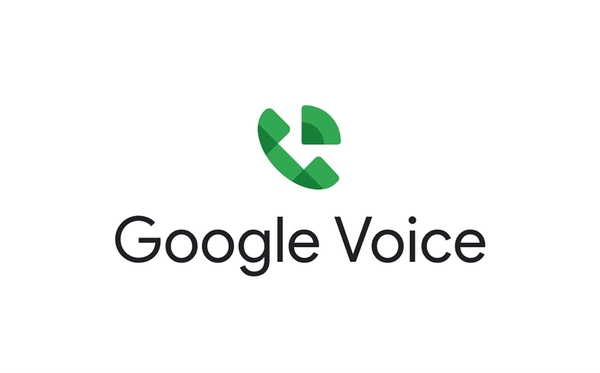How to Choose the Best VoIP Business Phone System for Your SMB

Small and medium-sized businesses (SMBs) are rapidly replacing traditional PBX phone systems with modern, cloud-based PBX VoIP solutions. Why? Because VoIP (Voice over Internet Protocol) offers unbeatable flexibility, cost savings, and essential features like SMS texting, mobile app access, and cloud-based system management. These PBX and VoIP solutions enhance business communication and support work from home environments.
In this post, we'll walk you through the key considerations for selecting the best enterprise VoIP providers for your SMB. We'll also compare VoIP vs PBX systems and emphasize the importance of a mobile-first, usage-based model to avoid overpaying for unused user seats. We'll explore how top phone service providers offer solutions that cater specifically to small business needs.
What Is VoIP and How Is It Different from PBX?
Traditional PBX (Private Branch Exchange) systems rely on expensive on-premises hardware and physical telephone lines. By contrast, VoIP uses your internet connection to manage calls, making it far more flexible and affordable. This comparison of VoIP vs PBX highlights the advantages of modern communication platforms.
Key advantages of VoIP vs PBX:
- Lower upfront costs: No need for costly hardware installations or maintenance costs.
- Scalability: Add or remove users on-demand, perfect for small business growth.
- Mobility: Use new VoIP phones and desktop apps to stay connected anywhere, supporting remote work.
- Unified communications: Integrate voice, SMS, voicemail, video conferencing, and chat.
- Advanced features: From call routing and analytics to voicemail transcription.
- Enhanced security: Many VoIP providers offer encryption and advanced security measures.
- Improved reliability: Cloud-based phone systems often provide better uptime and redundancy.
- Better performance: VoIP systems can offer clearer call quality and faster connections.
To find out more about 15 must-have features in VoIP check here.
Key Considerations When Choosing a Business VoIP System
1. Mobile-First Experience
A modern business phone service must offer a powerful mobile-first experience. Ensure your VoIP provider offers feature-rich iOS and Android apps with full access to calling, voicemail, and SMS capabilities. Look for softphone applications that turn any new VoIP phone into a full-featured business phone.
2. Unified Voice and SMS Communication
Look for a provider that enables business text messaging using your main number. This includes support for:
- Two-way SMS and MMS
- Shared team inboxes for improved customer support
- Call-to-text follow-ups
- Automated and scheduled text messages
- Integration with instant messaging and team collaboration tools
For an in-depth look, read Alianza’s complete guide to business text messaging.
3. Simple Pricing
Complicated pricing models can quickly turn a budget-friendly phone system into a costly headache. Many providers advertise low base rates but charge extra for essential features like call recording, auto attendants, or analytics, adding up to a bloated monthly invoice.
The truth is, business phone systems shouldn't be this complex. A better approach is simple: one flat monthly fee that covers everything you need, plus a one-time setup fee to get registered with the carrier. No hidden charges, no paying extra just to unlock standard functionality.
OnSIP outlines VoIP features and pricing strategies.

VoIP Features to Look For
Choosing the best VoIP system for your business means unlocking powerful tools that go far beyond just making calls. Unlike traditional PBX systems, which are often expensive and hardware-bound, VoIP vs PBX brings a modern, flexible approach—ideal for remote teams, growing businesses, and customer-focused operations. Below are five essential feature categories that highlight why VoIP is the smarter choice for today’s communication needs.
- Call Handling
Manage calls efficiently with features like Call Forwarding, Call Transfer, and Call Hold. - Availability & Responsiveness
Stay connected with Auto Reply, Business Hours Settings, and Auto Attendant IVR. - Message & Communication Tools
Enhance communication through SMS Broadcasts, Message Templates, and Voicemail Transcription. - Team Collaboration
Improve teamwork using Assigning Messages, Internal Threads, Shared Contacts, and Contact Notes. - AI & Automation
Boost productivity with Automatic Call Recording and AI Call Summaries.
Final Word
When comparing VoIP vs PBX, it’s clear that modern cloud VoIP systems offer far greater flexibility, affordability, and functionality, especially for growing SMBs. The best VoIP platforms empower businesses of all types, whether you're in healthcare, education, e-commerce, or field services, to streamline communication, boost team collaboration, and deliver faster, more personalized customer support. Upgrading from a traditional PBX to a smart VoIP system isn’t just a tech choice, it’s a competitive advantage.
Next up: Learn about SMS compliance, 10DLC, E911, and regulations in Part 2.
FAQs
Q: What is VoIP?
A: VoIP (Voice over Internet Protocol) is a communication technology that allows you to make phone calls over the internet rather than traditional telephone lines. It reduces infrastructure costs and adds flexibility, enabling calling from smartphones, desktops, and tablets.
Q: Is VoIP cheaper than PBX?
A: Yes, VoIP eliminates the need for physical phone lines and costly PBX hardware. Most VoIP services offer pay-as-you-go pricing or affordable subscriptions that significantly reduce overall communication costs, including installation expenses.
Q: Can I send text messages with VoIP?
A: Absolutely. Most modern VoIP providers offer SMS and MMS support using your business phone number, allowing you to text customers and receive replies in a centralized inbox.
Q: Will VoIP work on mobile phones?
A: Yes. Leading VoIP platforms provide mobile apps that let you make and receive calls, check voicemail, and send texts—all from your smartphone using your business number.
Q: Is VoIP reliable for SMBs?
A: With a stable internet connection, VoIP is highly reliable. Many providers offer uptime guarantees and failover features such as auto-forwarding to mobile devices during outages.
Q: Can I keep my existing phone numbers when switching to VoIP? A: Most VoIP service providers support number porting, allowing you to transfer your existing phone numbers, including toll-free numbers, to the new system.
Q: What kind of training is required for VoIP system deployment? A: While VoIP systems are generally user-friendly, providers often offer training resources and customer support to ensure smooth implementation and adoption across your organization.





